Dawn of a New Global Financial System

APRIL 18, 2022 GEOPOLITICS
Sergey Glazyev is a man living right in the eye of our current geopolitical and geo-geoeconomic hurricane. One of the most influential economists in the world, a member of the Russian Academy of Sciences, and a former adviser to the Kremlin from 2012 to 2019.
For the past three years, he has helmed Moscow’s uber strategic portfolio as a minister in charge of integration and macroeconomics of the Eurasia Economic Union (EAEU).
Glazyev’s recent intellectual production has been nothing short of transformative, epitomized by his essay “Sanctions and Sovereignty” and an extensive discussion of the new, emerging geo-economic paradigm in an interview with a Russian business magazine.
In another of his recent essays, Glazyev comments on how “I grew up in Zaporizhye, near which heavy fighting is now taking place in order to destroy the Ukrainian Nazis, who never existed in my small Motherland. I studied at a Ukrainian school and I know Ukrainian literature and language well, which from a scientific point of view is a dialect of Russian. I did not notice anything Russophobic in Ukrainian culture. In the 17 years of my life in Zaporizhye, I have never met a single Banderist.”
Glazyev was gracious to take some time from his packed schedule to provide detailed answers to the first series of questions in what we expect to become a running conversation, especially focused on the Global South. This is his first interview with a foreign publication since the start of Operation Z. Many thanks to Alexey Subottin for the Russian-English translation.
The Cradle: You are at the forefront of a game-changing geo-economic development: the design of a new monetary/financial system via an association between the EAEU [Eurasian Economic Union] and China, bypassing the U.S. dollar, with a draft soon to be concluded. Could you possibly advance some of the features of this system – which is certainly not a Bretton Woods III – but seems to be a clear alternative to the Washington consensus and very close to the necessities of the Global South?
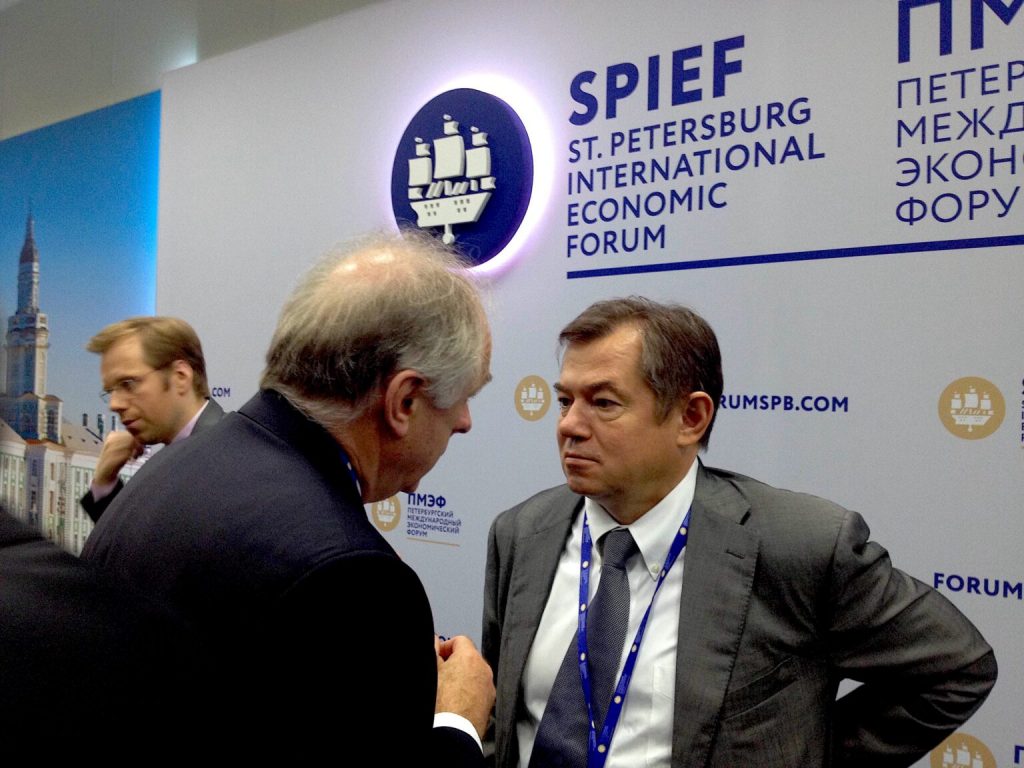
Glazyev: In about of Russophobic hysteria, the ruling elite of the United States played its last “trump ace” in the hybrid war against Russia. Having “frozen” Russian foreign exchange reserves in custody accounts of Western central banks, financial regulators of the U.S., EU- and the U.K. undermined the status of the dollar, euro, and pound as global reserve currencies. This step sharply accelerated the ongoing dismantling of the dollar-based economic world order.
Over a decade ago, my colleagues at the Astana Economic Forum and I proposed to transition to a new global economic system based on a new synthetic trading currency based on an index of currencies of participating countries. Later, we proposed to expand the underlying currency basket by adding around 20 exchange-traded commodities. A monetary unit based on such an expanded basket was mathematically modeled and demonstrated a high degree of resilience and stability.
At around the same time, we proposed to create a wide international coalition of resistance to the hybrid war for global dominance that the financial and power elite of the U.S. unleashed on the countries that remained outside of its control. My book The Last World War: the USA to Move and Lose, published in 2016, scientifically explained the nature of this coming war and argued for its inevitability — a conclusion based on objective laws of long-term economic development. Based on the same objective laws, the book argued the inevitability of the defeat of the old dominant power.
Currently, the U.S. is fighting to maintain its dominance, but just as Britain previously, which provoked two world wars but was unable to keep its empire and its central position in the world due to the obsolescence of its colonial economic system, it is destined to fail.
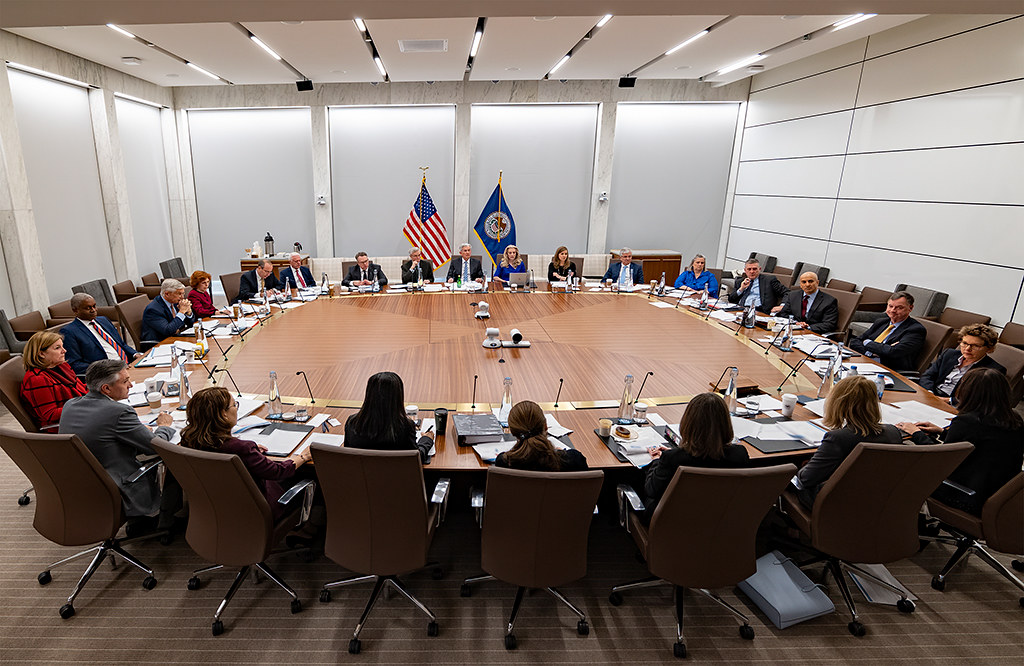
The British colonial economic system based on slave labor was overtaken by structurally more efficient economic systems of the U.S. and the U.S.S.R. Both the U.S. and the U.S.S.R. were more efficient at managing human capital in vertically integrated systems, which split the world into their zones of influence.
A transition to a new world economic order started after the disintegration of the U.S.S.R. This transition is now reaching its conclusion with the imminent disintegration of the dollar-based global economic system, which provided the foundation of the United States global dominance.
The new convergent economic system that emerged in the PRC (People’s Republic of China) and India is the next inevitable stage of development, combining the benefits of both centralized strategic planning and market economy, and of both state control of the monetary and physical infrastructure and entrepreneurship.
The new economic system united various strata of their societies around the goal of increasing common well-being in a way that is substantially stronger than the Anglo-Saxon and European alternatives. This is the main reason why Washington will not be able to win the global hybrid war that it started. This is also the main reason why the current dollar-centric global financial system will be superseded by a new one, based on a consensus of the countries who join the new world economic order.
In the first phase of the transition, these countries fall back on using their national currencies and clearing mechanisms, backed by bilateral currency swaps. At this point, price formation is still mostly driven by prices at various exchanges, denominated in dollars. This phase is almost over: after Russia’s reserves in dollars, euro, pound, and yen were “frozen,” it is unlikely that any sovereign country will continue accumulating reserves in these currencies. Their immediate replacement is national currencies and gold.
The second stage of the transition will involve new pricing mechanisms that do not reference the dollar. Price formation in national currencies involves substantial overheads, however, it will still be more attractive than pricing in “un-anchored” and treacherous currencies like dollars, pounds, euro, and yen. The only remaining global currency candidate – the yuan – won’t be taking its place due to its inconvertibility and the restricted external access to the Chinese capital markets. The use of gold as the price reference is constrained by the inconvenience of its use for payments.
The third and final stage of the new economic order transition will involve the creation of a new digital payment currency founded through an international agreement based on principles of transparency, fairness, goodwill, and efficiency.
I expect that the model of such a monetary unit that we developed will play its role at this stage. A currency like this can be issued by a pool of currency reserves of BRICS [Brazil, Russia, India, and China] countries, which all interested countries will be able to join.
The weight of each currency in the basket could be proportional to the GDP of each country (based on purchasing power parity, for example), its share in international trade, as well as the population and territory size of participating countries.
In addition, the basket could contain an index of prices of main exchange-traded commodities: gold and other precious metals, key industrial metals, hydrocarbons, grains, sugar, as well as water and other natural resources.
To provide backing and to make the currency more resilient, relevant international resource reserves can be created in due course. This new currency would be used exclusively for cross-border payments and issued to the participating countries based on a pre-defined formula. Participating countries would instead use their national currencies for credit creation, in order to finance national investments and industry, as well as for sovereign wealth reserves. Capital account cross-border flows would remain governed by national currency regulations.

The Cradle: Michael Hudson specifically asks that if this new system enables nations in the Global South to suspend dollarized debt and is based on the ability to pay (in foreign exchange), can these loans be tied to either raw materials or, for China, tangible equity ownership in the capital infrastructure financed by foreign non-dollar credit?
Glazyev: Transition to the new world economic order will likely be accompanied by systematic refusal to honor obligations in dollars, euro, pound and yen. In this respect, it will be no different from the example set by the countries issuing these currencies who thought it appropriate to steal foreign exchange reserves of Iraq, Iran, Venezuela, Afghanistan and Russia to the tune of trillions of dollars.
Since the U.S., Britain, EU and Japan refused to honor their obligations and confiscated the wealth of other nations which was held in their currencies, why should other countries be obliged to pay them back and to service their loans?
In any case, participation in the new economic system will not be constrained by the obligations in the old one. Countries of the Global South can be full participants of the new system regardless of their accumulated debts in dollars, euro, pound and yen.
Even if they were to default on their obligations in those currencies, this would have no bearing on their credit rating in the new financial system. Nationalization of the extraction industry, likewise, would not cause a disruption. Further, should these countries reserve a portion of their natural resources for the backing of the new economic system, their respective weight in the currency basket of the new monetary unit would increase accordingly, providing that nation with larger currency reserves and credit capacity. In addition, bilateral swap lines with trading partner countries would provide them with adequate financing for co-investments and trade financing.
The Cradle: In one of your latest essays, “The Economics of the Russian Victory,” you call for “an accelerated formation of a new technological paradigm and the formation of institutions of a new world economic order.”
Among the recommendations, you specifically propose the creation of “a payment and settlement system in the national currencies of the EAEU member states” and the development and implementation of “an independent system of international settlements in the EAEU, SCO [Shanghai Cooperation Organisation] and BRICS, which could eliminate critical dependence of the U.S.-controlled SWIFT system.”
Is it possible to foresee a concerted joint drive by the EAEU and China to “sell” the new system to SCO members, other BRICS members, ASEAN members and nations in West Asia, Africa and Latin America? And will that result in a bipolar geo-economy – the West versus The Rest?
Glazyev: Indeed, this is the direction where we are headed. Disappointingly, the monetary authorities of Russia are still a part of the Washington paradigm and play by the rules of the dollar-based system, even after Russian foreign exchange reserves were captured by the West.
On the other hand, the recent sanctions prompted extensive soul searching among the rest of the non-dollar-bloc countries. Western “agents of influence” still control the central banks of most countries, forcing them to apply suicidal policies prescribed by the IMF. However, such policies at this point are so obviously contrary to the national interests of these non-western countries that their authorities are growing justifiably concerned about financial security.
You correctly highlight the potentially central roles of China and Russia in the genesis of the new world economic order. Unfortunately, the current leadership of the CBR (Central Bank of Russia) remains trapped inside the intellectual cul-de-sac of the Washington paradigm and is unable to become a founding partner in the creation of a new global economic and financial framework.
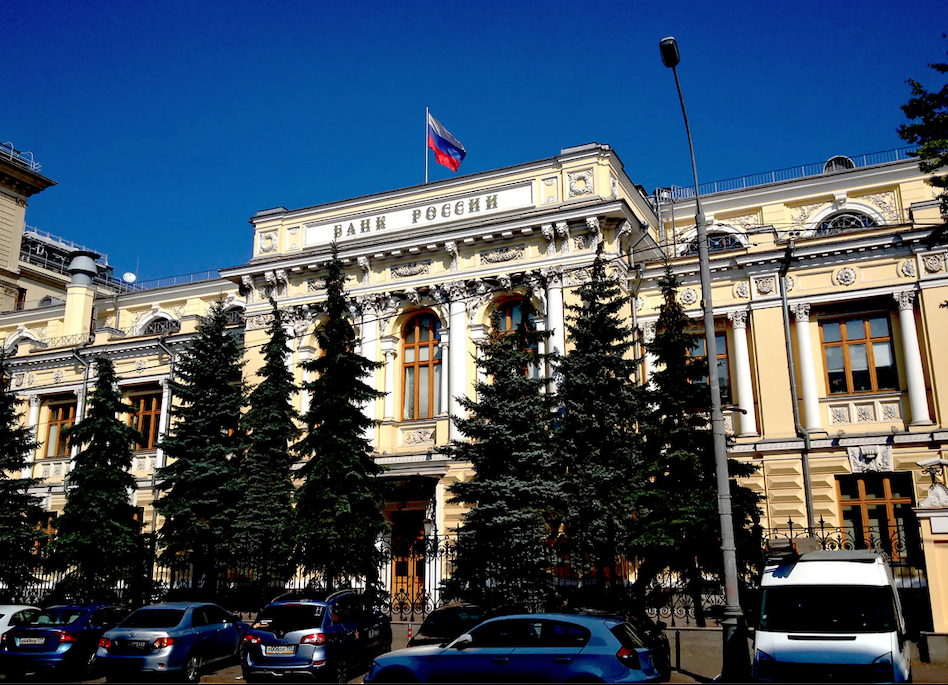
At the same time, the CBR already had to face the reality and create a national system for interbank messaging which is not dependent on SWIFT and opened it up for foreign banks as well. Cross-currency swap lines have been already set up with key participating nations. Most transactions between member states of the EAEU are already denominated in national currencies and the share of their currencies in internal trade is growing at a rapid pace.
A similar transition is taking place in trade with China, Iran and Turkey. India indicated that it is ready to switch to payments in national currencies as well. A lot of effort is put in developing clearing mechanisms for national currency payments. In parallel, there is an ongoing effort to develop a digital non-banking payment system, which would be linked to gold and other exchange-traded commodities – the “stablecoins.”
Recent U.S. and European sanctions imposed on the banking channels have caused a rapid increase in these efforts. The group of countries working on the new financial system only needs to announce the completion of the framework and readiness of the new trade currency and the process of formation of the new world financial order will accelerate further from there. The best way to bring it about would be to announce it at the SCO or BRICS regular meetings. We are working on that.
The Cradle: This has been an absolutely key issue in discussions among independent analysts across the West. Was the Russian central bank advising Russian gold producers to sell their gold in the London market to get a higher price than the Russian government or central bank would pay? Was there no anticipation whatsoever that the coming alternative to the U.S. dollar will have to be based largely on gold? How would you characterize what happened? How much practical damage has this inflicted on the Russian economy short-term and mid-term?
Glazyev: The monetary policy of the CBR, implemented in line with the IMF recommendations, has been devastating for the Russian economy. Combined disasters of the “freezing” of circa $400 billion of foreign exchange reserves and over a trillion dollars siphoned from the economy by oligarchs into Western offshore destinations, came with the backdrop of equally disastrous policies of the CBR, which included excessively high real rates combined with a managed float of the exchange rate. We estimate this caused under-investment of circa 20 trillion rubles and under-production of circa 50 trillion rubles in goods.
Following Washington’s recommendations, the CBR stopped buying gold over the last two years, effectively forcing domestic gold miners to export full volumes of production, which added up to 500 tons of gold. These days the mistake and the harm it caused are very much obvious. Presently, the CBR resumed gold purchases, and, hopefully, will continue with sound policies in the interest of the national economy instead of “targeting inflation” for the benefit of international speculators, as had been the case during the last decade.
The Cradle: The Fed as well as the ECB were not consulted on the freeze of Russian foreign reserves. Word in New York and Frankfurt is that they would have opposed it had they been asked. Did you personally expect the freeze? And did the Russian leadership expect it?
Glazyev: My book, The Last World War, that I already mentioned, which was published as far back as 2015, argued that the likelihood of this happening eventually is very high. In this hybrid war, economic warfare and informational/cognitive warfare are key theaters of conflict. On both of these fronts, the U.S. and NATO countries have overwhelming superiority and I did not have any doubt that they would take full advantage of this in due course.
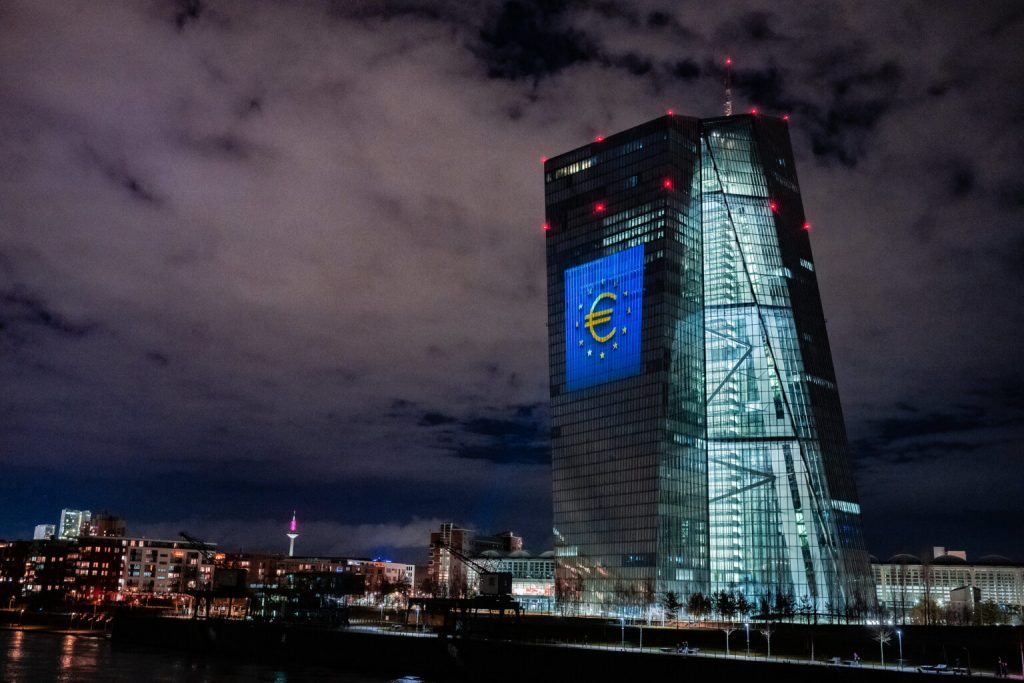
I have been arguing for a long time for the replacement of dollars, euros, pounds and yen in our foreign exchange reserves with gold, which is produced in abundance in Russia. Unfortunately, Western agents of influence who occupy key roles at central banks of most countries, as well as rating agencies and key publications, were successful in silencing my ideas. To give you an example, I have no doubt that high-ranking officials at the Fed and the ECB were involved in developing anti-Russian financial sanctions. These sanctions have been consistently escalating and are being implemented almost instantly, despite the well-known difficulties with bureaucratic decision-making in the EU.
The Cradle: Elvira Nabiullina has been reconfirmed as the head of the Russian central bank. What would you do differently, compared to her previous actions? What is the main guiding principle involved in your different approaches?
Glazyev: The difference between our approaches is very simple. Her policies are an orthodox implementation of IMF recommendations and dogmas of the Washington paradigm, while my recommendations are based on the scientific method and empirical evidence accumulated over the last hundred years in leading countries.
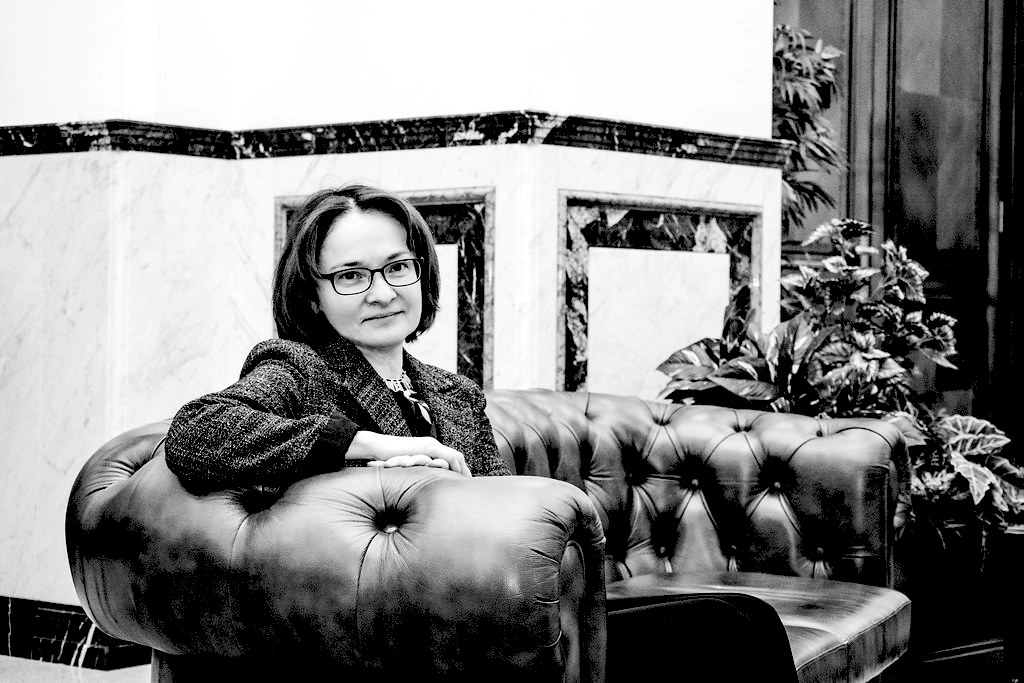
The Cradle: The Russia-China strategic partnership seems to be increasingly ironclad – as Presidents Vladimir Putin and Xi Jinping themselves constantly reaffirm. But there are rumbles against it not only in the West but also in some Russian policy circles. In this extremely delicate historical juncture, how reliable is China as an all-season ally to Russia?
Glazyev: The foundation of the Russian-Chinese strategic partnership is common sense, common interests and the experience of cooperation over hundreds of years. The U.S. ruling elite started a global hybrid war aimed at defending its hegemonic position in the world, targeting China as the key economic competitor and Russia as the key counter-balancing force.
Initially, the U.S. geopolitical efforts were aimed to create a conflict between Russia and China. Agents of Western influence were amplifying xenophobic ideas in our media and blocking any attempts to transition to payments in national currencies. On the Chinese side, agents of Western influence were pushing the government to fall in line with the demands of the U.S. interests.
However, the sovereign interests of Russia and China logically led to their growing strategic partnership and cooperation, in order to address common threats emanating from Washington.
The U.S. tariff war with China and financial sanctions war with Russia validated these concerns and demonstrated the clear and present danger our two countries are facing. Common interests of survival and resistance are uniting China and Russia, and our two countries are largely symbiotic economically. They complement and increase the competitive advantages of each other. These common interests will persist over the long run.
The Chinese government and the Chinese people remember very well the role of the Soviet Union in the liberation of their country from the Japanese occupation and in the post-war industrialization of China. Our two countries have a strong historical foundation for strategic partnership and we are destined to cooperate closely in our common interests.
I hope that the strategic partnership of Russia and the PRC, which is enhanced by the coupling of the One Belt One Road with the Eurasian Economic Union, will become the foundation of President Vladimir Putin’s project of the Greater Eurasian Partnership and the nucleus of the new world economic order.
Pepe Escobar is a columnist at The Cradle, editor-at-large at Asia Times and an independent geopolitical analyst focused on Eurasia. Since the mid-1980s he has lived and worked as a foreign correspondent in London, Paris, Milan, Los Angeles, Singapore and Bangkok. His latest book is Raging Twenties. This article is from The Cradle.
You can actually participate in the global efforts to cripple the Deep State organized criminal cabal's ability to genocide- while enjoying healthcare freedom at the same time, by boycotting Big Pharma for good.

Sergey Glazyev: The Results of American Aggression That Are Positive for Russia
Sergey Glazyev – April 10, 2022
Especially for thinking people – regular readers of this channel – I will briefly outline the reasons for the monstrous war that unfolded before our eyes in Ukraine. There is nothing worse than a war between social groups of the same people. In this case, ours, the Russian people, which for centuries was formed on the territory of present-day Ukraine, which at one time, at the initiative of Lenin, included Malorossiya, Novorossiya, and Carpatho-Russia-.
I grew up in Zaporizhye, near which heavy fighting is now taking place in order to destroy the Ukrainian Nazis, who never existed in my small Motherland. I studied at a Ukrainian school and I know Ukrainian literature and language well, which from a scientific point of view is a dialect of Russian. I did not notice anything Russophobic in Ukrainian culture. In the 17 years of my life in Zaporizhye, I have never met a single Banderist. It was considered an offensive word and for its use in someone’s address one could get it in the face. In a nightmare, it could not be dreamed that we would live to see the current state of fierce fighting between the armed forces of Russia and Ukraine.
Our President has said many times that Russians and Ukrainians are one nation. From the point of view of historical, linguistic, archaeological, ethnographic, genetic science, this is a proven fact. It was artificially divided after the collapse of the USSR. Within three decades after this, according to our President, the greatest geopolitical catastrophe of the 20th century, pathological processes developed in the public consciousness of the Russian people of Ukraine, which led them to a serious, deadly disease – Russophobia. How could this happen?
Once again, I refer to my book “The Last World War: The United States Starts and Loses”, published in 2016, in which the current state of affairs was accurately predicted. One of the chapters of this book, revealing the causes of American aggression, is called “Why Ukraine?”. I recommend this book to everyone who wants to understand the tragic events that are taking place today. As well as the previous book “Ukrainian catastrophe”, which was banned by American censorship in Ukraine. Below I will outline the main provisions of these works, based on an understanding of the long-term patterns of economic development.
As is said, there is nothing more practical than a good theory. The theory of long-term economic development that I have been developing for many years, revealing the patterns of periodic changes in technological and world economic structures, made it possible to foresee many unexpected dramatic events: the surge and fall in oil prices in the 2000s; the global financial crisis of 2008; the unleashing by Washington of a world hybrid war against China and Russia, including a trade war against China and an escalation of financial sanctions against Russia, up to the cultivation of a Russophobic-nazi regime in Ukraine and the current armed conflict.
Unfortunately, almost all the predictions made on the basis of my theory of long-term economic development have been fully confirmed. Unfortunately, because the tragic course of events that involved our country in a state of armed conflict with Ukraine could have been avoided if those in power had listened to these forecasts and implemented scientifically sound measures to block American aggression, which were repeatedly proposed by the author, including in the indicated publications. These measures have become even more relevant today. If the doctor gave a diagnosis and a prognosis for the development of the disease, which were fully confirmed, then it is logical to listen to the prescriptions and methods of treatment offered by him. Especially if the disease has already led to pathologies fraught with death.
Let’s start with a brief summary of the theoretical foundations. We are currently experiencing a period of change in technological and world patterns, which is always accompanied by structural economic crises and world wars, respectively. The change in technological patterns begins with a multiple increase in energy prices, after which the economies of the leading countries of the world plunge into a state of prolonged depression, the exit from which occurs through a “storm of innovations” after the collapse of financial bubbles resulting from the flow of capital from obsolete industries to the financial market.
During this period, military-political tensions escalate and the arms race spurs the economy to enter a new long wave of growth based on a new technological order. During this period, a window of opportunity opens for the economic breakthrough of new technological leaders, not burdened by tying up capital in obsolete industries. This period is currently ending with the post-COVID leap of China and India into the leaders of the world technical and economic development based on a new technological order, the core of which is a complex of nano-, bioengineering, information, digital, additive and cognitive technologies.
Mayor of Lvov Calls for the Restitution of Property in Exchange for EU Membership
At the same time, a transition is unfolding to a new world economic order, the core of which was also formed in Southeast Asia on the basis of a new convergent system for managing socio-economic development, combining centralised strategic planning and market competition, state control over financial and material infrastructure and private entrepreneurship, in which the state integrates the interests of various social groups around the common goal of increasing the people’s well-being on the basis of rapid economic development.
As always happened in such periods, the ruling elite of the core countries of the outgoing world economic order provokes a world war to maintain their global hegemony. In our case, the US financial and power elite is deploying a hybrid war with the aim of chaotising the countries it does not control, including the leaders of the new world economic and technological order.
Objectively, the main rivals of the US and the EU are China and India, whose development rates are many times higher and which form the core of a new world economic order, already producing and exporting more products. But the subjective ruling elite of the US and the EU seek to crush Russia, traditionally viewing it as their main geopolitical adversary. At the same time, they chose Ukraine as the direction of the main blow, again in accordance with their geopolitical ideas of past centuries.
Here they clearly follow the precepts of Brzezinski, Hitler, Bismarck, as well as the Austrian and English crowns, who for two centuries have been trying to tear Ukraine away from Russia, tearing the Russian world into antagonistic parts with the aim of its subsequent annihilation in an internecine war. But, today, trying to inflict maximum damage on us in order to maintain their global hegemony, they are significantly strengthening the position of China, in favour of which the exploitation of Russian natural resources and the EAEU market are shifting. This catastrophic for Ukraine geopolitical mistake of Western leaders sharply accelerates the change of world economic structures and the rise of Southeast Asia in relation to the North Atlantic alliance.
Due to the objective laws of the change in world economic structures, the United States will lose the world hybrid war unleashed by them. In a fit of Russophobia, they have already played their ace of trump against Russia – the issue of world currency. After the “hellish sanctions” imposed against Russia, with the arrest of all Russian assets in dollars, euros, pounds and yens, these currencies automatically lost their status as world reserve currencies. The rest of the countries are faced with an urgent need to create a new monetary and financial system independent of them. Russia could take the lead in this process, if not for the dominance of American agents of influence in the banking and financial sector.
The book “The Last World War”, published 6 years ago, substantiated the need to create a broad anti-war coalition based on:
– refusal to use the dollar as a world currency;
– introduction of an embargo on the import of computer equipment and the use of information and communication technologies of countries that refuse to conclude a world convention against cyberterrorism (primarily the United States);
– the imposition of sanctions against countries that violate the international convention on the prohibition of the development and use of biological weapons (it is now obvious that this is also the United States).
If 6 years ago the leaders of the SCO and BRICS countries, objectively interested in preventing the global hybrid war unleashed by the United States, would have started implementing these proposals, then today American aggression would have stalled. If the proposals justified by the author in 2014 to protect not only Crimea, but also the other nine regions of the South and East of Ukraine from the American Russophobic puppets who seized power in Kiev, would have been implemented, then no military operation would be required. The population of these regions turned to us with a call to protect them from the Nazis raised by the US intelligence agencies.
During the 8 years of occupation by American and British intelligence services, the public consciousness of the Ukrainian population was reformatted, and the younger generation was raised in a Russophobic spirit. American geopolitics left the Russian leadership no other choice but to launch a special military operation to prevent the mass extermination of Russian people in Donbass. The correct goals of the denazification and demilitarisation of Ukraine were declared. The problem, however, is that this is exactly what the enemy expected from us, driving us into a corner with the forces of the Ukrainian nazis they raised. As soon as we started to destroy them, we were hit by pre-prepared information resources and monetary and financial sanctions.
It is very important to understand that the initiative on the main fronts of the global hybrid war – informational-cognitive and monetary-financial – belongs entirely to the enemy, and the war is going according to his scenario planned in advance. These sanctions would have followed in any case – if we had not launched a special military operation ourselves, then we would have been forced into it by an attack by the Ukrainian Armed Forces on Donbass in much worse conditions.
But we found ourselves in a trap set by the American and British intelligence services, which flooded the world media with a stream of mass murders of Ukrainian citizens organised under their leadership by the Ukrainian military, attributed to the Russian army. In this way, they are winning the battle for world public opinion against us, and they have also taken away more than a trillion Russian assets located in their jurisdiction. This, too, could have been avoided if our monetary authorities had followed the recommendations justified in the above book.
However, despite the defeat on the information and cognitive front and heavy losses on the monetary and financial front, Russia has significantly strengthened on the domestic front. Firstly, the influence of the fifth column of American agents of influence has sharply weakened; Although the comprador oligarchy , in an effort to keep the savings exported from Russia, jumps out of their pants to prove their loyalty to Washington and London, they are seen there as a spent card. Many foreign agents of influence, who daily poisoned the public consciousness in the media, simply fled. Secondly, as a result of the imposed sanctions, the budget rule was automatically canceled, according to which the oil and gas revenues of the budget were invested in the obligations of the NATO countries.
Now these hundreds of billions of rubles are placed at the disposal of the government and can be spent on constructive purposes. Thirdly, with its sanctions, the enemy actually stopped the export of capital from Russia, which creates financial opportunities for doubling investments in the development of its own economy. Fourth, freed from manipulation by American speculators, the ruble has strengthened significantly even without foreign exchange reserves. And due to the ban on transactions in dollars and euros, it becomes a regional reserve currency. Fifth, the voluntary withdrawal of Western companies from the Russian market opens up previously unthinkable opportunities for import substitution.
If we correctly take advantage of all these positive results of American aggression for Russia, then instead of the planned drop in economic activity by 10% of GDP this year, we can get 10% of its growth. But for this it is necessary to rebuild the entire system of managing the development of the Russian economy on the basis of the principles of the new world economic order. Including monetary policy should become a part of strategic planning, just as the banking system should work to invest in achieving the goals of socio-economic development planned by the state.
Deputy of Rada & Creator Of "Mirotvorets" Confirmed Order to Kill Graham Phillips
In the heat of the anti-Russian sanctions, the United States strongly set up, discrediting not only the dollar and undermining confidence in the world monetary and financial system based on it, but also giving us the opportunity to provide irrefutable evidence of violations of the international convention on the prohibition of biological weapons, as well as the total falsity of their information policy.
If it is really impossible to deceive the whole world all the time, then soon the US leadership will be exposed in violations of the fundamental norms of international security, the total lies of their statements and international position, and, ultimately, in crimes against humanity. This should be the focus of our foreign policy. The apparent solidity of the NATO bloc can be undermined by our active consistent policy in this direction. The conditions are also ripe for the formation of a broad anti-war coalition around the above areas: international conventions on biological and cybersecurity .
In other words, there are good opportunities for our counteroffensive in the global hybrid war. On its main fronts, the enemy has used up his main forces and is no longer able to inflict damage on us. After the arrest of all Russian assets under its jurisdiction, we have no other choice but to create our own sovereign monetary and financial system capable of multiplying investment and innovation activity in our economy.
After fabricating streams of obvious fake news about war crimes in Ukraine, a limit has been reached, after which the public consciousness begins to clear up and gradually understand that these crimes were committed by the Ukrainian military under the guidance of American and British curators. After the blocking of Russia’s foreign economic relations with the EU, economic crisis processes are intensifying in the latter, which will soon be supplemented by social problems due to the inevitable new wave of hungry refugees from Africa.
The Western world today is on the verge of a catastrophe, which came very close due to the anti-Russian sanctions that were suicidal for Europe and the war unleashed by the British and American intelligence services in Ukraine. We just need to endure; not succumb to the sanctions, because they will not be stopped; not leave the liberated territories of the Russian world in Ukraine, because Russian people live there, whose support we really need; not negotiate with American puppets, because they will surely deceive again; not be fooled by offers to step back in exchange for an asset unfreeze because it’s against the law and these decisions need to be challenged; not return dollars, euros and pounds to our economy, because this will lead to the resumption of the export of capital.
And quickly build a modern economic development management system based on the new world economic order, which has proven itself brilliantly in China, India and other countries. Create coalitions with them for the speedy formation of a new world monetary, financial, trade and economic system independent of the United States and its satellites. How to do this is described in my books. In order not to search, I will again refer to the books “Jump into the Future” and “Management of Economic Development”, where, based on the fundamental theory of long-term economic development, proposals are substantiated for the transition to a policy of advanced development of our economy based on a new technological order through the creation of institutions of a new world economic order.
My theory of long-term economic development as a process of changing technological and world economic structures works. The forecasts developed on its basis come true, and the proposed measures bring tangible benefits. I would very much like the readers of our channel, among whom there are probably young specialists in the field of management, to take it into service.
COPYRIGHTS
Copy & Paste the link above for Yandex translation to Norwegian.
WHO and WHAT is behind it all ? : >
The bottom line is for the people to regain their original, moral principles, which have intentionally been watered out over the past generations by our press, TV, and other media owned by the Illuminati/Bilderberger Group, corrupting our morals by making misbehavior acceptable to our society. Only in this way shall we conquer this oncoming wave of evil.
Commentary:
Administrator
HUMAN SYNTHESIS
All articles contained in Human-Synthesis are freely available and collected from the Internet. The interpretation of the contents is left to the readers and do not necessarily represent the views of the Administrator. Disclaimer: The contents of this article are of sole responsibility of the author(s). Human-Synthesis will not be responsible for any inaccurate or incorrect statement in this article. Human-Synthesis grants permission to cross-post original Human-Synthesis articles on community internet sites as long as the text & title are not modified